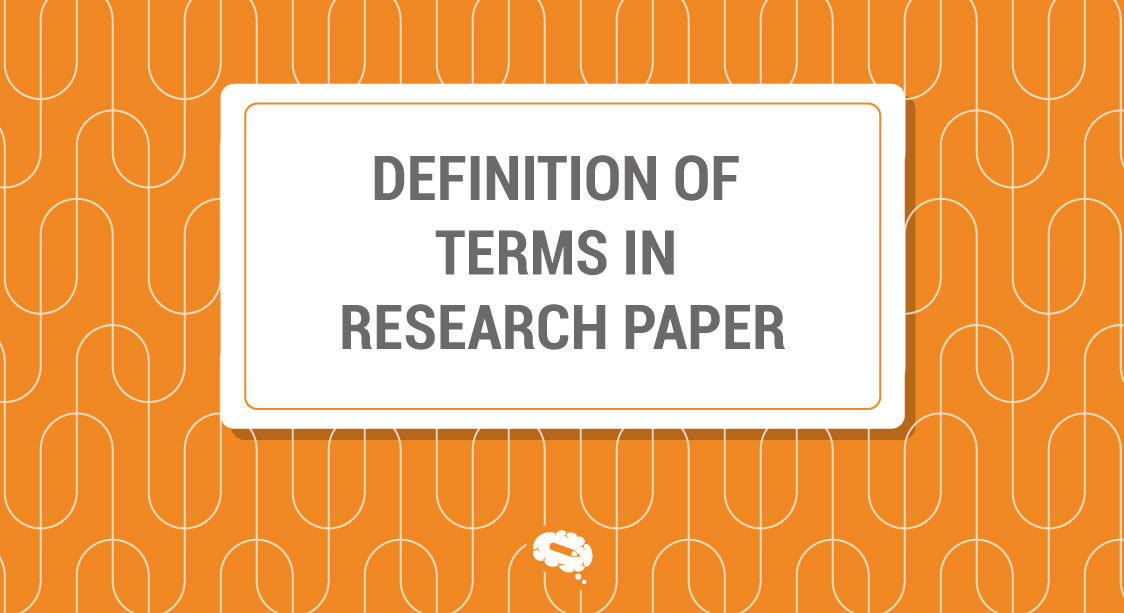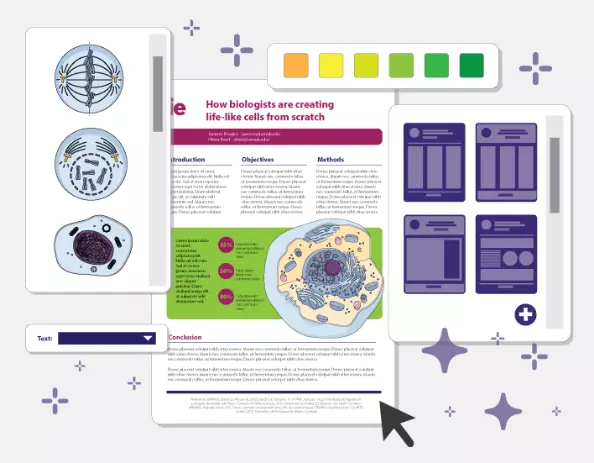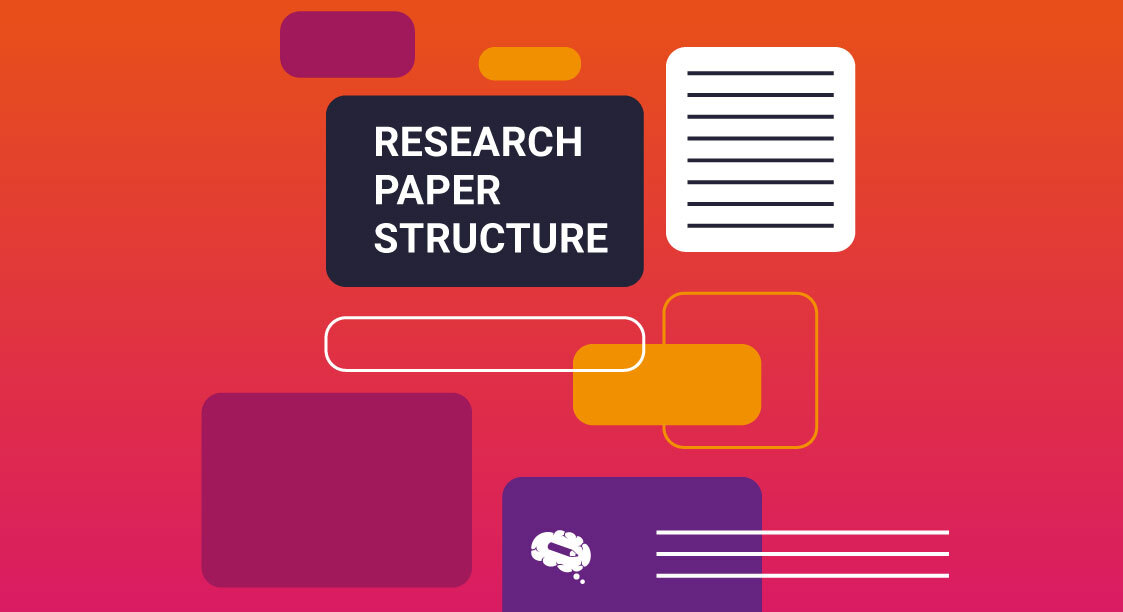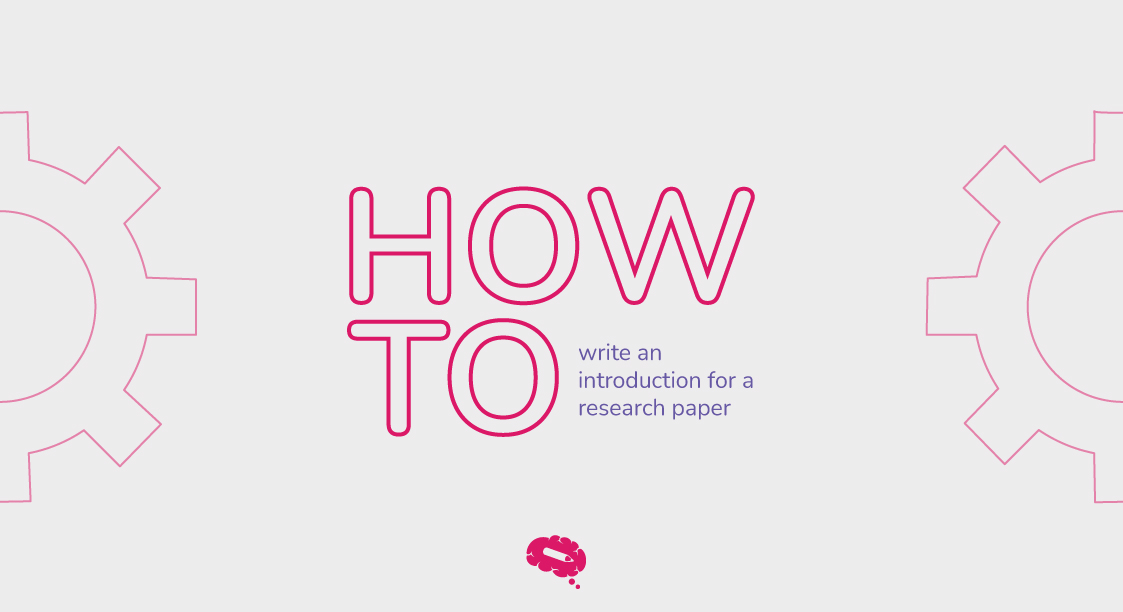Have you ever come across a research paper and found yourself scratching your head over complex synonyms and unfamiliar terms? It’s a hassle as you have to fetch a dictionary and then ruffle through it to find the meaning of the terms.
To avoid that, an exclusive section called ‘Definition of Terms in a Research Paper’ is introduced which contains the definitions of terms used in the paper. Let us learn more about it in this article.
What Is The “Definition Of Terms” In A Research Paper?
The definition of terms section in a research paper provides a clear and concise explanation of key concepts, variables, and terminology used throughout the study.
In the definition of terms section, researchers typically provide precise definitions for specific technical terms, acronyms, jargon, and any other domain-specific vocabulary used in their work. This section enhances the overall quality and rigor of the research by establishing a solid foundation for communication and understanding.
Purpose Of Definition Of Terms In A Research Paper
This section aims to ensure that readers have a common understanding of the terminology employed in the research, eliminating confusion and promoting clarity. The definitions provided serve as a reference point for readers, enabling them to comprehend the context and scope of the study. It serves several important purposes:
- Enhancing clarity
- Establishing a shared language
- Providing a reference point
- Setting the scope and context
- Ensuring consistency

Benefits Of Having A Definition Of Terms In A Research Paper
Having a definition of terms section in a research paper offers several benefits that contribute to the overall quality and effectiveness of the study. These benefits include:
Clarity And Comprehension
Clear definitions enable readers to understand the specific meanings of key terms, concepts, and variables used in the research. This promotes clarity and enhances comprehension, ensuring that readers can follow the study’s arguments, methods, and findings more easily.
Consistency And Precision
Definitions provide a consistent framework for the use of terminology throughout the research paper. By clearly defining terms, researchers establish a standard vocabulary, reducing ambiguity and potential misunderstandings. This precision enhances the accuracy and reliability of the study’s findings.
Common Understanding
The definition of terms section helps establish a shared understanding among readers, including those from different disciplines or with varying levels of familiarity with the subject matter. It ensures that readers approach the research with a common knowledge base, facilitating effective communication and interpretation of the results.
Avoiding Misinterpretation
Without clear definitions, readers may interpret terms and concepts differently, leading to misinterpretation of the research findings. By providing explicit definitions, researchers minimize the risk of misunderstandings and ensure that readers grasp the intended meaning of the terminology used in the study.
Accessibility For Diverse Audiences
Research papers are often read by a wide range of individuals, including researchers, students, policymakers, and professionals. Having a definition of terms in a research paper helps the diverse audience understand the concepts better and make appropriate decisions.
Types Of Definitions
There are several types of definitions that researchers can employ in a research paper, depending on the context and nature of the study. Here are some common types of definitions:
Lexical Definitions
Lexical definitions provide the dictionary or commonly accepted meaning of a term. They offer a concise and widely recognized explanation of a word or concept. Lexical definitions are useful for establishing a baseline understanding of a term, especially when dealing with everyday language or non-technical terms.
Operational Definitions
Operational definitions define a term or concept about how it is measured or observed in the study. These definitions specify the procedures, instruments, or criteria used to operationalize an abstract or theoretical concept. Operational definitions help ensure clarity and consistency in data collection and measurement.
Conceptual Definitions
Conceptual definitions provide an abstract or theoretical understanding of a term or concept within a specific research context. They often involve a more detailed and nuanced explanation, exploring the underlying principles, theories, or models that inform the concept. Conceptual definitions are useful for establishing a theoretical framework and promoting deeper understanding.
Descriptive Definitions
Descriptive definitions describe a term or concept by providing characteristics, features, or attributes associated with it. These definitions focus on outlining the essential qualities or elements that define the term. Descriptive definitions help readers grasp the nature and scope of a concept by painting a detailed picture.
Theoretical Definitions
Theoretical definitions explain a term or concept based on established theories or conceptual frameworks. They situate the concept within a broader theoretical context, connecting it to relevant literature and existing knowledge. Theoretical definitions help researchers establish the theoretical underpinnings of their study and provide a foundation for further analysis.
Also read: Understanding What is Theoretical Framework
Types Of Terms
In research papers, various types of terms can be identified based on their nature and usage. Here are some common types of terms:
Key Term
A key term is a term that holds significant importance or plays a crucial role within the context of a research paper. It is a term that encapsulates a core concept, idea, or variable that is central to the study. Key terms are often essential for understanding the research objectives, methodology, findings, and conclusions.
Technical Term
Technical terms refer to specialized vocabulary or terminology used within a specific field of study. These terms are often precise and have specific meanings within their respective disciplines. Examples include “allele,” “hypothesis testing,” or “algorithm.”
Legal Terms
Legal terms are specific vocabulary used within the legal field to describe concepts, principles, and regulations. These terms have particular meanings within the legal context. Examples include “defendant,” “plaintiff,” “due process,” or “jurisdiction.”
Definitional Term
A definitional term refers to a word or phrase that requires an explicit definition to ensure clarity and understanding within a particular context. These terms may be technical, abstract, or have multiple interpretations.
Career Privacy Term
Career privacy term refers to a concept or idea related to the privacy of individuals in the context of their professional or occupational activities. It encompasses the protection of personal information, and confidential data, and the right to control the disclosure of sensitive career-related details.
Broad Term
A broad term is a term that encompasses a wide range of related concepts, ideas, or objects. It has a broader scope and may encompass multiple subcategories or specific examples.
Also read: Keywords In A Research Paper: The Importance Of The Right Choice
Steps To Writing Definitions Of Terms
When writing the definition of terms section for a research paper, you can follow these steps to ensure clarity and accuracy:
Step 1: Identify Key Terms
Review your research paper and identify the key terms that require definition. These terms are typically central to your study, specific to your field or topic, or may have different interpretations.
Step 2: Conduct Research
Conduct thorough research on each key term to understand its commonly accepted definition, usage, and any variations or nuances within your specific research context. Consult authoritative sources such as academic journals, books, or reputable online resources.
Step 3: Craft Concise Definitions
Based on your research, craft concise definitions for each key term. Aim for clarity, precision, and relevance. Define the term in a manner that reflects its significance within your research and ensures reader comprehension.
Step 4: Use Your Own Words
Paraphrase the definitions in your own words to avoid plagiarism and maintain academic integrity. While you can draw inspiration from existing definitions, rephrase them to reflect your understanding and writing style. Avoid directly copying from sources.
Step 5: Provide Examples Or Explanations
Consider providing examples, explanations, or context for the defined terms to enhance reader understanding. This can help illustrate how the term is applied within your research or clarify its practical implications.
Step 6: Order And Format
Decide on the order in which you present the definitions. You can follow alphabetical order or arrange them based on their importance or relevance to your research. Use consistent formatting, such as bold or italics, to distinguish the defined terms from the rest of the text.
Step 7: Revise And Refine
Review the definitions for clarity, coherence, and accuracy. Ensure that they align with your research objectives and are tailored to your specific study. Seek feedback from peers, mentors, or experts in your field to further refine and improve the definitions.
Step 8: Include Proper Citations
If you have drawn ideas or information from external sources, remember to provide proper citations for those sources. This demonstrates academic integrity and acknowledges the original authors.
Step 9: Incorporate The Section Into Your Paper
Integrate the definition of terms section into your research paper, typically as an early section following the introduction. Make sure it flows smoothly with the rest of the paper and provides a solid foundation for understanding the subsequent content.
By following these steps, you can create a well-crafted and informative definition of terms section that enhances the clarity and comprehension of your research paper.
In conclusion, the definition of terms in a research paper plays a critical role by providing clarity, establishing a common understanding, and enhancing communication among readers. The definition of terms section is an essential component that contributes to the overall quality, rigor, and effectiveness of a research paper.
Also read: Beyond The Main Text: The Value Of A Research Paper Appendix
Join Our Fast-Growing Community Of Users To Revolutionize Scientific Communication!
Every individual needs a community to learn, grow, and nurture their hobbies, passions, and skills. But when you are a scientist, it becomes difficult to identify the right community that aligns with your goals, has like-minded professionals, and understands mutual collaboration.
If you are a scientist, looking for a great community, Mind the Graph is here. Join our fast-growing community of users to revolutionize scientific communication and build a healthy collaboration. Sign up for free.

Subscribe to our newsletter
Exclusive high quality content about effective visual
communication in science.





